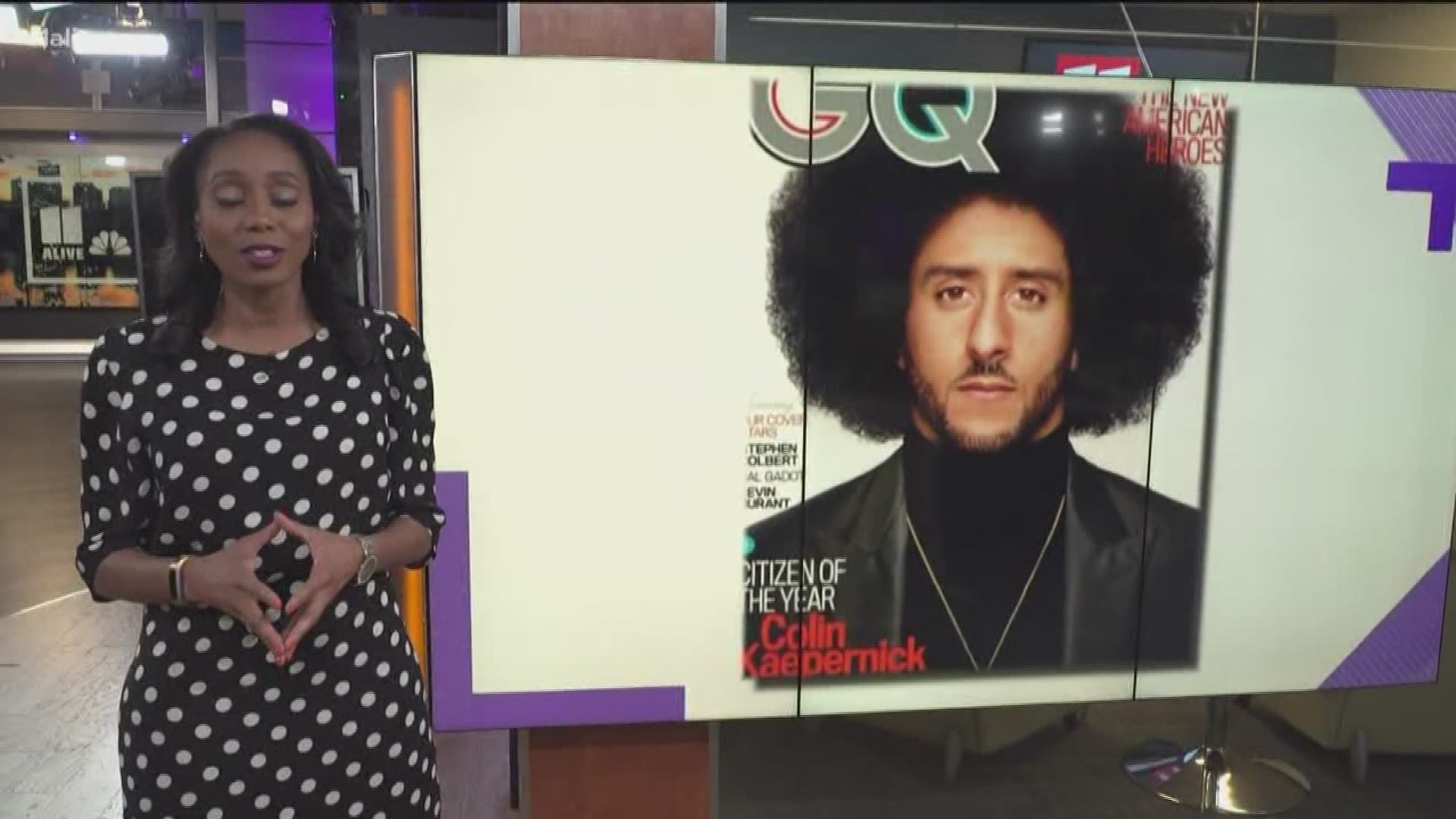The Associated Press unearthed quite the bombshell this week, reporting that Colin Kaepernick had a salary demand of $20 million when approached by the Alliance of American Football – the new independent spring league, which has an Atlanta franchise.
Undoubtedly, Kaepernick's salary request would put a major dent into the AAF's salary structure, with each current player possessing a non-guaranteed, three-year contract of $250,000 (cumulative total).
However, if the embattled quarterback could drop that contractual demand to maybe $12 million, the league should consider the all-encompassing value of adding Kaepernick to the mix.
As such, 11Alive Sports has brainstormed five ways in which Kaepernick's inclusion would be a major boon to The Alliance:
1. The AAF would likely see a major bump in league revenues
We're not privy to the AAF's original business plan, which attracted keynote investors like MGM Resorts International, Peter Thiel and The Chernin Group (which owns Barstool Sports).
However, it's safe to assume the league expects only modest success for the inaugural season, given the prohibitive operating costs of building a league from scratch.
RELATED: NFL reaches private settlement with Colin Kaepernick, Eric Reid in so-called 'collusion' lawsuit
What's more, it's hard to identify many title sponsors for the AAF, outside of Starter, which serves as the on-field apparel source for all eight franchises (Atlanta, Arizona, Birmingham, Memphis, Orlando, San Diego, San Antonio, Salt Lake City).
Bottom line: If the AAF needs a serious recruiting pitch for prospective title sponsors, Kaepernick would make for a great conversation starter.
Which brings us to this ...
2. Kaepernick's inclusion would likely force Nike's participation in the league
Starter might have an exclusive arrangement with the AAF; but the powers-that-be would be crazy to turn down Nike money, in some capacity, if Kaepernick officially joined the fray.
For the third fiscal quarter for 2018, Nike reportedly collected $9 billion in revenues.
As part of this success, the company built an entire marketing campaign around Kaepernick ... even though he hadn't attempted a professional pass since December 2016.
3. There would be guaranteed sellouts for every Kaepernick outing – home and away
The AAF's Memphis @ Birmingham game from Week 1 reportedly attracted a crowd of 17,000-plus.
It's a decent figure ... but one that will likely diminish in successive weeks, if the Iron fare poorly in the standings, or people simply get bored with the league's overall product.
A Kaepernick signing would bring eyeballs to TV and put butts in the seats for the participating franchise.
As a collateral effect, it would help maintain a decent share of the TV/ticket-buying audience for non-Kaepernick games.
NOTE: For what it's worth, the AAF's TV ratings for Week 1 exceeded the NBA Game of the Week on ABC.
4. Kaepernick's signing would test the old marketing adage of 'There's no such thing as bad publicity'
There likely remains a large faction of haters out there, people who are still upset with Kaepernick for kneeling during the national anthem, while playing for the NFL's 49ers.
And as Americans, it's their right to express dissenting viewpoints.
But make no mistake, regardless of which side you're on for this trending topic – in terms of supporting or denouncing Kaepernick – a robust share of that grouping would tune in for AAF games.
As such, it's a win-win for the league.
5. Sports history has numerous examples of superstar athletes legitimizing start-up leagues
In 1975, 35-year-old Pelé, perhaps the greatest player in soccer history, joined the North American Soccer League; and two years later, he helped the New York Cosmos capture the NASL championship.
Thirty-plus years later, David Beckham would add instant credibility to Major League Soccer by signing with the Los Angeles Galaxy (in the neighborhood of five years, $100 million).
And last, but not least ...
Herschel Walker likely represents the gold standard of stars shedding light onto a new league.
Back in the early 1980s, NFL rules prohibited college players from leaving school early for the draft.
As a Plan B, the United States Football League swooped in and signed Walker to a contract that circumvented the USFL's per-team salary pool of $1.8 million.
Was Walker worth the exempted investment, a personal-services contract with New Jersey Generals owner J. Walter Duncan ... and later real estate mogul Donald Trump?
In three years with the league, Walker averaged 1,854 rushing yards and 18 touchdowns; and in 1985, the UGA legend established a single-season professional record of 2,411 rushing yards.
During this prolific period, Walker was arguably the New York/New Jersey market's biggest gate attraction, garnering top billing over Hall of Famer Lawrence Taylor (New York Giants) and Pro Bowl receiver Wesley Walker (New York Jets).
Kaepernick would likely have the same effect on whichever AAF market acquired his services.


